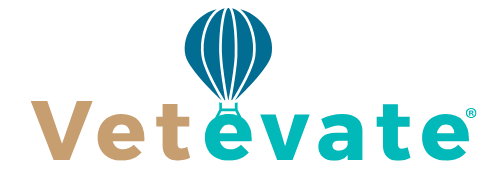The idea of the “best” veterinarian job can vary widely depending on the individual’s goals, passions, and lifestyle preferences. For some, it may mean working in a cutting-edge specialty hospital with the latest medical technology. For others, it could be providing care to underserved communities or working in wildlife conservation. Regardless of the setting, the best veterinarian jobs tend to offer a combination of meaningful work, professional development opportunities, fair compensation, supportive workplace culture, and a healthy work-life balance.
To qualify for these top-tier roles, a veterinarian must go beyond basic education and licensure. While graduating from an accredited veterinary school and passing the NAVLE are foundational requirements, employers offering the most sought-after roles typically seek candidates who demonstrate a commitment to excellence in specific areas of practice. This may include additional certifications in specialties such as internal medicine, surgery, dentistry, or behavior. Board certification from the American College of Veterinary Internal Medicine (ACVIM), the American College of Veterinary Surgeons (ACVS), or similar bodies often distinguishes candidates in highly competitive fields.
Equally important are soft skills like communication, empathy, leadership, and adaptability. The best veterinary employers know that technical ability must be matched with the capacity to work well with clients, colleagues, and support staff. In fact, in many high-quality roles, especially those in academic or referral settings, strong interpersonal abilities can be just as vital as clinical knowledge. When evaluating what makes a job exceptional, these employers look for veterinarians who not only know how to treat animals but also how to collaborate, teach, and contribute to a positive and inclusive practice culture.
Building the Right Qualifications
If your goal is to land a top veterinarian job, then developing the right qualifications is essential. Beyond your DVM or VMD degree, you’ll want to think about how to position yourself as a strong and versatile candidate. Internships and residencies are crucial for those seeking specialty practice. Even for general practitioners, completing a rotating internship can help build a more robust clinical foundation and demonstrate dedication to growth and learning.
Continuing education is another important avenue for qualification. The veterinary industry is constantly evolving, and top employers value candidates who stay current with medical advances, industry trends, and best practices. Attending conferences, participating in webinars, and earning CE credits in niche areas such as ultrasonography, endoscopy, or exotic animal care can help you stay competitive. Many of the best jobs also look for experience with electronic medical record systems, practice management software, and telemedicine platforms, so becoming proficient in these areas can give you an advantage.
Volunteer work, externships, and hands-on experience with a variety of species and settings can also bolster your resume. Employers appreciate candidates who have demonstrated flexibility and resilience by working in shelters, zoos, mobile clinics, or international field projects. These experiences not only develop practical skills but also show that you’re serious about animal care in all its forms.
Just as important as formal education and hands-on experience is your ability to convey your value in writing. A compelling resume and cover letter tailored to the specific role and employer can make a significant difference. Emphasize outcomes—whether it’s improved patient recovery rates, streamlined protocols, or strengthened client relationships. Top veterinary employers are often looking for leadership potential, so don’t shy away from highlighting initiatives you’ve led or innovations you’ve contributed to, even in early-career positions.
Using Veterinary Job Boards to Identify Top Roles
Once you’ve established strong qualifications, the next step is to use veterinary job boards strategically to uncover and secure the best roles. These job boards are purpose-built to serve the veterinary profession, and they feature a wide range of listings—from small-town general practices to globally recognized teaching hospitals and research institutions. The best boards allow you to filter by location, practice type, experience level, and sometimes even employer values or species focus, which helps streamline your search.
To find top-tier roles, begin by setting up a candidate profile that includes a professional summary, your education, certifications, areas of clinical interest, and a detailed employment history. Make sure the profile is clear, concise, and error-free, as many employers will view this before your resume. It’s also helpful to include a professional photo and any publications, presentations, or awards you’ve received, particularly if you’re applying for academic or research-based positions.
Most veterinary job boards allow you to set job alerts so you’re immediately notified when a position matching your criteria is posted. This is especially useful when targeting highly competitive roles, as applying early can make a difference. In addition to passively browsing listings, consider making yourself discoverable in resume databases where employers can reach out directly if they think you’re a fit. This is particularly beneficial for well-qualified candidates who might not be actively job hunting but are open to the right opportunity.
Don’t overlook the value of the descriptions themselves. Read job listings carefully to identify what employers are truly looking for and tailor your applications accordingly. Look for language that signals a great working environment—employers that emphasize mentorship, work-life balance, CE support, and transparent communication are often those who invest in long-term employee satisfaction. On the flip side, be wary of red flags such as vague job descriptions, lack of compensation details, or unrealistic expectations without support.
Making the Most of the Application Process
Once you’ve identified the veterinarian jobs that best align with your qualifications and goals, it’s time to submit strong, tailored applications. Each application should be customized to the specific role. While it’s tempting to reuse materials, the most effective candidates craft new cover letters that speak directly to the employer’s mission, patient base, and community impact. This effort shows you’ve done your homework and are genuinely interested in the role.
Use your resume to showcase not only what you’ve done but how you’ve made a difference. Employers hiring for the best veterinarian jobs want results-driven professionals. Rather than listing responsibilities, highlight achievements: the number of cases handled, client satisfaction improvements, successful treatments, or leadership roles in protocol development or training programs. Quantifying your experience makes your contributions tangible.
If a job board offers messaging or networking features, use them wisely. Reaching out with a brief, polite introduction to a recruiter or hiring manager can demonstrate initiative and may open the door to further conversation. Just be sure your messages are professional, well-written, and relevant to the position.
Prepare thoroughly for interviews by researching the practice, preparing insightful questions, and reviewing your clinical experiences so you can speak confidently about your decision-making and approach to care. Be ready to discuss how you handle challenging situations, work in teams, and continue your professional development. Interviews for top jobs often go beyond clinical skills to evaluate your emotional intelligence, problem-solving ability, and cultural fit within the team.
After interviews, always send a thank-you note that reiterates your interest in the position and your appreciation for the opportunity to speak with them. This small gesture can leave a strong final impression. Keep track of your applications and be patient. The best roles sometimes have a longer hiring timeline due to more thorough screening processes.
The Best Veterinarian Jobs
Landing one of the best veterinarian jobs requires more than technical competence—it takes a thoughtful approach to building your qualifications and navigating the job search process. From developing advanced clinical skills and obtaining board certifications to cultivating leadership and communication abilities, each step you take strengthens your position in a competitive market.
Veterinary job boards are powerful tools in your search, offering tailored listings, industry insights, and networking opportunities. By using these platforms effectively and applying with strategy and professionalism, you can connect with employers who value your contributions and offer roles that bring both personal fulfillment and professional growth.




